Protest Activity Grows in the North Caucasus Republics
By Emil A. Souleimanov and Huseyn Aliyev
February 26, 2018, the CACI Analyst
In 2017, protest activity has grown across the North Caucasus, just as in Russia’s other regions, as shown in a recent report by the Committee of Civil Initiatives (CCI). Socio-economic factors have shaped this trend throughout Russia’s regions, yet in the multi-ethnic North Caucasus these are coupled with a sense of nationalism-driven political discrimination and exclusion. On the eve of the forthcoming Football Championship in Russia, and as war-hardened veterans are returning from Syria to their homeland, this trend may contribute to a worsening security situation in Russia.
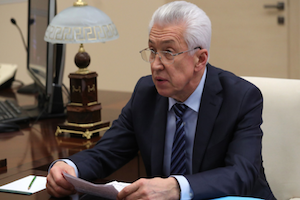
Leadership Change in Dagestan
By Natalia Konarzewska
February 20, 2018, the CACI Analyst
In late September, Ramazan Abdulatipov announced his decision to step down from his post as the head of the Republic of Dagestan. Abdulatipov cited his age (71) as the main reason for his resignation, but the change of leadership in Dagestan should be viewed in the context of Russia’s upcoming presidential ballot scheduled for March 2018. Moscow habitually replaces heads of the federal subjects just before or after elections. Likely reasons behind Abdulatipov’s resignation are his poor performance and inability to tackle the republic’s most pressing problems. Multi-ethnic Dagestan is one of the Russian Federation’s most unstable subjects, continuously embattled by economic problems, clan rivalry and the activities of religious militants. On October 3, President Vladimir Putin appointed Vladimir Vasilyev, who does not represent any local ethnic group, to fill the vacant position.
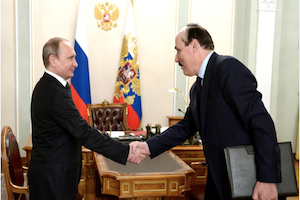
Chechnya's Kadyrov Appoints Relatives to Top Jobs Amid Sanctions
By Huseyn Aliyev
February 6, 2018, the CACI Analyst
On December 20, 2017, the Head of Chechen Republic Ramzan Kadyrov was placed on the list of individuals sanctioned under the Magnitsky Act. The sanctions were introduced amid growing repression of dissent and the rapid replacement of top government officials with members of Kadyrov’s clan and family. Kadyrov’s own recent statement about his desire to retire suggests that the Chechen leader seeks to strengthen the influence of his family and clan in the republic’s government, enabling him to take a less formal (albeit similarly powerful) role should such a necessity arise in the future. The revival of the home-grown insurgency this year poses a new threat to the stability of Kadyrov’s regime, which will likely be met with increased repression.
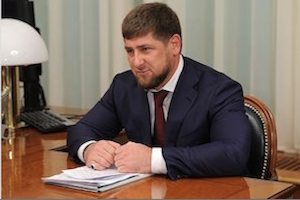
Is there an Agreement on Caspian Sea Delimitation?
By Stephen Blank
January 25, 2018, the CACI Analyst
On December 5, 2017, Russian Foreign Minister Sergei Lavrov announced that all the key issues regarding the delimitation of the Caspian Sea had been resolved and that a treaty was being prepared for heads of state to sign in 2018 in Astana. Yet less optimistic statements from the other parties, particularly Iran, suggest that Lavrov’s assessment was premature. If Russia and Iran can nevertheless reconcile their differences on the demarcation of the Caspian, this would have important strategic consequences not only for the littoral states, but also for the Caucasus, Central Asia and the Middle East.
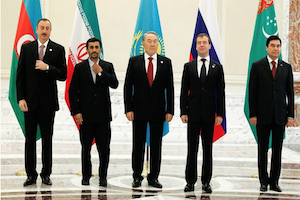
Russian Loan Allows Armenia to Upgrade Military Capabilities
By Eduard Abrahamyan
January 8, 2018, the CACI Analyst
On December 6, 2017, the Armenian Parliament unanimously ratified the Armenian-Russian US$ 100 million “state export loan.” The accord, signed on October 24, allows Yerevan to borrow funds for purchasing a wide range of sophisticated arms manufactured by Russia in order to implement the “Common Defense Sector Development Plan.” This is Moscow’s second programmed military loan to Armenia, following the US$ 200 million loan agreed in 2015 which is now in the final stage of realization. The pending loan is intended to allow Yerevan to uphold its consistent procurement of military hardware since 2011 in an effort to negate Azerbaijan’s military-technical superiority.
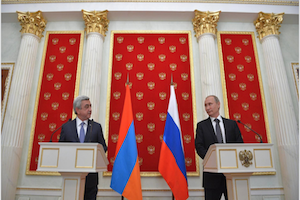





 Book S. Frederick Starr and Svante E. Cornell,
Book S. Frederick Starr and Svante E. Cornell,